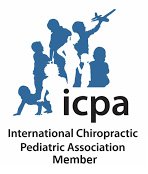That persistent ache between your shoulder blades might seem like just another part of daily life that you have to just “deal with.” But middle back pain often signals underlying issues that can be addressed through proper care.
While lower back pain tends to get more attention, discomfort in the middle back can be equally disruptive to your daily activities—from working at your desk to playing with your children. It can even keep you up at night! So, what can you do about it? In this article, we explore why middle back pain happens and how your local Plano chiropractor may be able to help!
What Is Middle Back Pain a Symptom Of?
Figuring out what’s causing your middle back pain is the first step to finding real relief. Sp, here’s a look at some of the most common reasons this part of the spine can become sore or stiff.
1. Poor Posture
The way we hold ourselves throughout the day profoundly affects our spinal health. Many people spend hours hunched over computers or phones, causing the muscles in the middle back to become strained and overworked. This sustained poor positioning puts excessive pressure on the thoracic spine, leading to persistent discomfort. Over time, this can create muscle imbalances where some muscles become overstretched while others tighten and shorten.
2. Spinal Misalignment
Your spine is designed to maintain specific curves that help distribute weight and absorb shock effectively. When vertebrae in the middle back shift out of their optimal position, it can create pressure on surrounding nerves and tissues. This misalignment often develops gradually due to repetitive movements, habitual poor posture, or previous injuries that weren’t properly addressed.
3. Disc Changes
The discs between your vertebrae act as natural shock absorbers and help maintain proper spacing in your spine. As these discs experience wear over time, they may begin to lose height or change shape, affecting the alignment of your thoracic spine. This can create pressure points and discomfort in the middle back region.
4. Muscular Tension
Stress, anxiety, and emotional tension often manifest physically in the middle back area. When under pressure, we tend to unconsciously tighten our shoulders and upper back muscles, creating knots and trigger points that can cause persistent pain. This muscle tension can become a cycle—where pain causes more tension, which in turn creates more discomfort.
5. Rib Joint Dysfunction
Each rib connects to the thoracic spine through small joints, allowing the chest to expand for proper breathing. When these joints become restricted or misaligned, it can cause sharp or achy pain in the middle back. This type of dysfunction often affects breathing patterns and can make certain movements uncomfortable.
6. Forward Head Posture
The position of your head greatly influences the health of your entire spine. When your head consistently sits forward of your shoulders, it creates additional strain on the middle back muscles as they work overtime to support this imbalanced position. This modern-day problem has become increasingly common with the widespread use of digital devices.
7. Work-Related Factors
The demands of your job can significantly impact middle back health. Whether you’re lifting objects frequently, performing repetitive movements, or remaining in fixed positions for extended periods, these work patterns can strain the thoracic spine. Even seemingly low-impact activities like continuous typing or mouse use can create muscle imbalances that lead to middle back discomfort over time.
8. Sleep Position and Quality
Your sleeping position plays a major role in spinal health. Side sleeping with an unsupportive pillow or mattress can twist your middle back out of alignment. Stomach sleeping is particularly problematic as it forces your neck to rotate while flattening the natural curve of your spine. Poor sleep quality itself can lower your pain threshold, making existing back discomfort feel more intense.
9. Dehydration and Nutrition
Yes, this matters, too!
The health of your spine depends heavily on proper hydration and nutrition. When you’re dehydrated, the discs between your vertebrae can’t maintain their optimal height and cushioning ability. Additionally, a diet lacking essential nutrients may affect how well your body maintains and repairs spinal tissues. This often contributes to increased stiffness and discomfort in the middle back region.
At Keystone Chiropractic, our experienced chiropractors specialize in identifying the root cause of your discomfort and creating personalized treatment plans that address your specific needs. Through gentle, targeted adjustments, we can help restore proper alignment, reduce muscle tension, and improve your overall spinal health.
Book your appointment with our team today! Your path to a pain-free life starts here.





